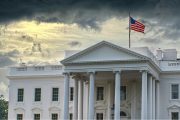
Absent regulatory approval, the Biden administration struck a $3.2 billion deal last week with Pfizer and its partner BioNTech for 105 million doses of experimental genetic therapeutics for Covid (aka “vaccine”), which could be delivered as soon as later this summer and continue into the fourth quarter of the year.
According to the June 29 announcement on Pfizer’s website, the doses will come in 3, 10, and 30 milligrams, which suggests that they will cover all “eligible” demographics for the shot, including toddlers as young as six-month-old. The shipment will likely include the adult dose, which will be designed to tackle the Omicron strain of Covid.
Reportedly, the average price per dose in the new deal has increased from the $19.50 per dose the government paid in its initial contract with Pfizer, and reached more than $30.47 per dose.
Chairman and Chief Executive Officer of Pfizer Albert Bourla said that the shots “may provide protection against current and future variants,” adding that “Vaccines have been and will remain critical to protecting people of all ages against COVID-19.”
That is certainly not the case. Since the very beginning of the pandemic, it has become clear that the virus poses a real threat to the very elderly and those with frail health. Even the advent of the new Covid strains that evolved to be more transmittable did not make the virus more deadly see here and here). Finally, the availability of truly safe and effective Covid early treatments such as hydroxychloroquine and ivermectin reduces the risks of severe Covid outcomes to a minimum.
Bourla also praised “the ongoing impact of vaccination efforts in the U.S. and around the world,” even though the high vaccination coverage around the world is associated with higher Covid rates.
The administration has the option to purchase up to 195 million additional doses, bringing the total number of potential doses to 300 million.
The shots were acquired by the U.S. Department of Health and Human Services (HHS) in collaboration with the Department of Defense.
According to the official statement, the administration “was forced” to reallocate $10 billion in existing funding, pulling billions of dollars from COVID-19 response efforts to secure the deal in the absence of additional funding from Congress.
HHS Secretary Xavier Becerra stressed that the shots would remain “free and widely available” for all Americans.
HHS Assistant Secretary for Preparedness and Response (ASPR) Dawn O’Connell added that the department has procured and delivered more than 750 million doses of Covid shots nationwide in the past 18 months. Thanks to this effort, as many as two-thirds of Americans are not considered “fully vaccinated,” i.e., have gotten two doses of the Pfizer-BioNTech or Moderna, or a single dose of the Johnson & Johnson Covid shot. The lion’s share of the distributed doses, or 450 million, were produced by Pfizer-BioNTech, according to data from the U.S. Centers for Disease Control and Prevention (CDC).
The move follows the endorsement of the Omicron-specific boosters by the vaccine advisory panel to the U.S. Food and Drug Administration on June 25. The FDA is expected to grant an Emergency Use Authorization (EUA) for the shot.
It is unclear how effective the additional dose will be since the companies have begun working on the shot for Omicron in late November 2021. Since then, the “original” Omicron (B.1.1.529 lineage) with its dozens of mutations compared to the Wuhan strain from 2019, in turn, evolved into two subvariants, BA.4 and BA.5, which are currently dominating the United States.
In early December, the company claimed that three doses of its shot were effective in neutralizing the Omicron. In January, Bourla underlined the importance of the third dose in protecting one from severe Covid, saying that just the initial two doses are not “good enough.”
Since then, the federal healthcare agencies have gradually expanded the recommendations of additional doses to include more age groups, such as children aged five to 11.
The question of the efficacy of the additional doses was raised during the FDA’s vaccine panel discussion. Remarkably, two distinguished members of the panel — Dr. Paul Offit, director of the Vaccine Education Center and professor of pediatrics in the Division of Infectious Diseases at Children’s Hospital of Philadelphia, and Dr. Hank Bernstein, professor of pediatrics at the Zucker School of Medicine — voted against the authorization. The members quoted the lack of increased efficacy of the shots in protecting against “serious illness.”
According to the leftist outlet The Daily Beast, the pandemic has “yielded outsize benefits for one company — Pfizer — making it both highly influential and hugely profitable as covid-19 continues to infect tens of thousands of people and kill hundreds each day.”
Despite the fact that people continue getting infected and sick with Covid, and die of it, the outlet called the company’s vaccines and Covid treatments a “success” that granted the company an “unusual weight in determining U.S. health policy.”
This state of affairs is likely to continue. Per the report,
“Because the virus keeps mutating and will be around for a long time, the market for Pfizer’s products won’t go away. In wealthier countries, the public is likely to keep coming back for more, like diners at an all-you-can-eat restaurant, sated but never entirely satisfied.”
Many non-establishment experts believe that mass vaccination with the vaccines that don’t prevent infection and transmission is the key factor that provides a competitive advantage to the most infectious — and potentially lethal — strains of the virus. Among them is the Belgian world-class virologist and vaccinologist Dr. Geert Vanden Bossche, who explained to The New American the mechanism of this action.
Therefore, the continuous mass intake of “leaky” vaccines only facilitates virus’ mutations. Those new variants will “require” new vaccine formulations. Forever and ever.





